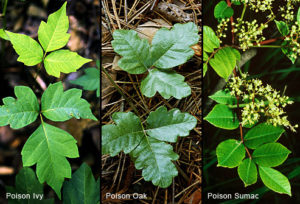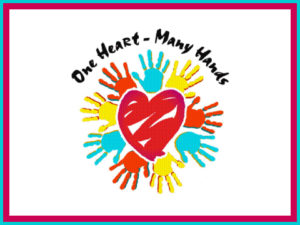
One arm merely turned rosy and splotchy, but the other arm doubled in size. My teenage daughter looked like she had sprouted an overweight man’s arm. Disturbing. By the next day, her face and much of her body was swollen, red, and scaly. She could not stop scratching and wanted to hibernate from the world.
What caused her outbreak? Our team was finishing a rewarding week serving with One Heart Many Hands. My hard-working girl was painting the cement foundation of a house. She tore out some weeds that were in the way, and then paused to pet the cat that seemed to be inspecting her work.
When her team left the job site for the day, she started scratching her arm. She assumed petting the cat made her itch, so she washed her hands. More scratching. She took allergy medicine and smeared anti-itch cream over her arms. It didn’t help. Next thing you knew, she had a man arm.
Several other people at her job site started scratching. You probably already guessed the culprit. The weeds turned out to be poison ivy. My daughter, who had never run into the pesky weed before, is allergic to it. Great.
One of my friends gave me a tube of Zanfel to wash the urushiol from my daughter’s skin (and from my own because it got on me when I was helping her). Oh, blessed relief. A doctor then prescribed steroids for my poor girl. After four days, her arm almost looks like it belongs to her.
I’m trying to make something good come out of our ivy battle, so here are the practical lessons we learned:
- Be able to actually identify poison ivy, sumac, and oak.
- Know how to treat it immediately (I’m not a Zanfel commercial but it really helped) so the poison doesn’t get into your blood stream (especially if you are allergic).
And here’s how I can apply it to life: Negative thoughts can be just as poisonous as poison ivy. If we don’t tame them right away, they can fester and infect our entire way of thinking. In a previous blog about stinking thinking (http://www.tamibrumbaugh.com/?p=547) I mentioned a scripture that helps me fight off negative thoughts. “We demolish arguments and every pretension that sets itself up against the knowledge of God, and we take captive every thought to make it obedient to Christ.” 2 Corinthians 10:5 (NIV). I also shared my plan to fight the stinking thinking: A negative thought pops into my head. I realize it, grab it, and tell myself to be done with it. I then pump in positive thoughts.
So no more poison, physical or mental. And please no more man arms.









